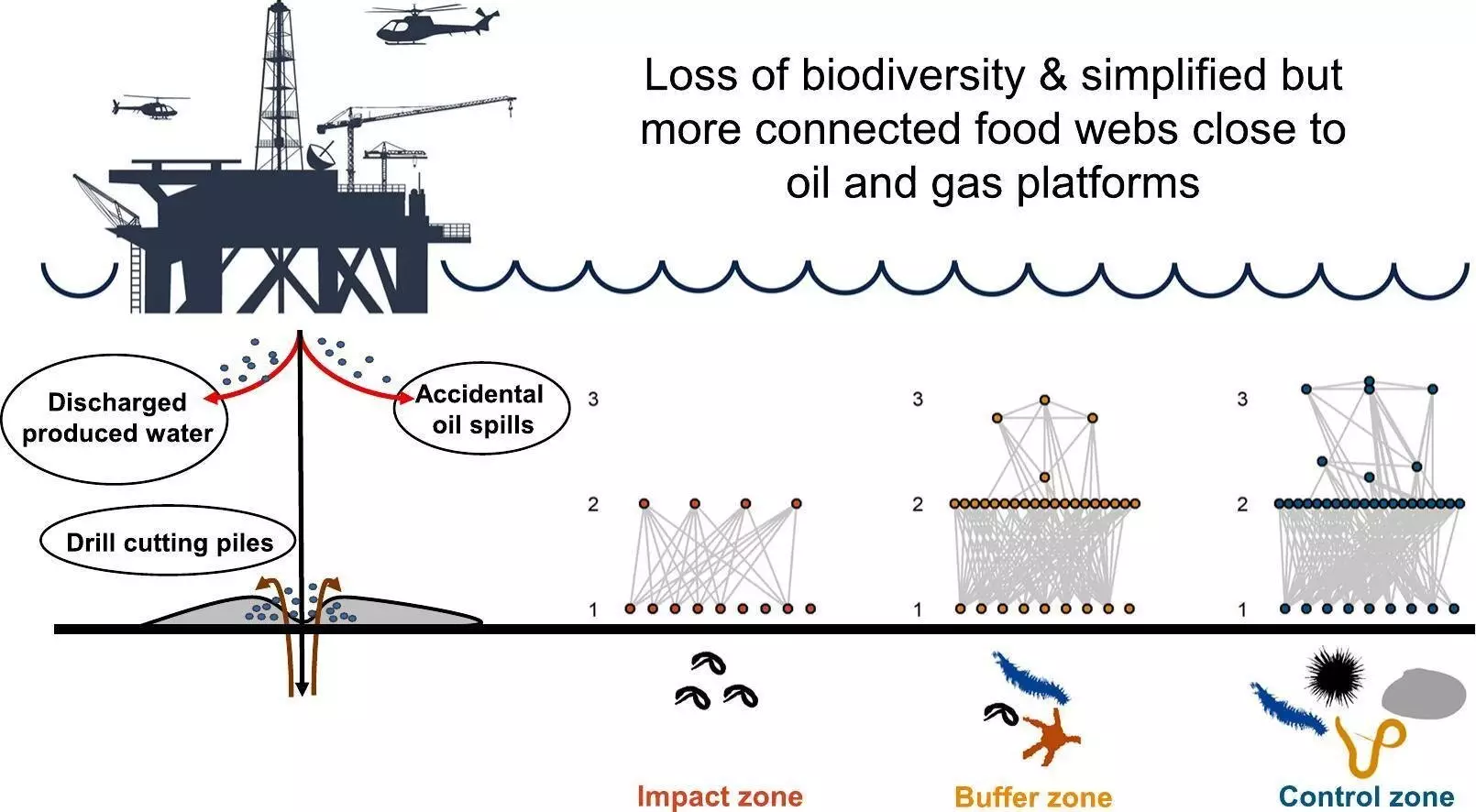Oil and gas extraction in the North Sea, once touted for its economic benefits, has now been revealed to wreak havoc on marine ecosystems. A recent study by the University of Essex, alongside the Natural History Museum and the Center for Environment, Fisheries and Aquaculture Science (CEFAS), unearthed alarming data showing pollution spikes that can exceed 10,000% in areas surrounding offshore platforms. As climate change continues to loom over our planet, it is striking to find that fossil fuel exploration is still on the rise, despite the heavy toll it takes on biodiversity.
The implications of the study are nothing short of staggering. For instance, the research identified that various pollutants, including hydrocarbons, were up to 10,613% more concentrated within a half-kilometer radius of oil rigs compared to areas farther away. Similarly, heavy metals like lead, nickel, and copper surged by 455%. This accumulation of contaminants not only affects the aquatic environment but has far-reaching consequences for marine life.
A Declining Marine Ecosystem
With over 4,200 species analyzed from data collected between 1981 and 2012 near nine oil and gas platforms off Scotland and England, the findings are sobering. The number of species observed within contaminated sediments saw a nearly 30% decline, highlighting a glaring issue: marine invertebrates, crucial for food chains, are suffering the most. These organisms, serving as essential prey for larger species, are being replaced by hardier, smaller populations in the polluted sediments.
This transformation is shocking. Food webs, the intricate networks through which energy and nutrients are transferred between organisms, are diminishing in complexity. Predatory species like starfish are disappearing, with only less sensitive organisms remaining. This unbalanced shift can lead to the destabilization of whole ecosystems, which depend on a variety of species coexisting and interacting to maintain health.
Key Findings from Groundbreaking Research
Zelin Chen, the leading Ph.D. student on this study, articulated the concerns that many conservationists share. While the ramifications of hydrocarbon extraction on biodiversity have been acknowledged for some time, this research provides the first consistent data illustrating the trends across multiple platforms. The study showed that as oil and gas production commenced, significant changes in marine community structures emerged, including a marked decrease in species richness within the vicinity of platforms.
Moreover, Chen’s analysis focused on delineating an “impact zone” of 500 meters around each platform, a “buffer zone” of 500 to 1,500 meters, and untouched areas beyond that. This precise categorization allowed for a clear understanding of how oil extraction adversely affects biodiversity. Dr. Eoin O’Gorman, another member of the research team, emphasized the significance of simpler food webs, suggesting that they indicate areas that are stressed and less productive. Such findings should urgently prompt discussions on environmental policies regarding fossil fuel extraction.
The Future of Decommissioning Practices
With many of these offshore platforms approaching the end of their operational life, the question of how to effectively decommission them arises. Dr. Natalie Hicks highlighted the need for collaboration between industry, policymakers, and scientists to safeguard marine ecosystems during the decommissioning process. Given the ocean’s pivotal role in climate regulation, all stakeholders must prioritize sustainable practices.
The legacy of these oil and gas operations is already concerning, and as researchers call for science-led decommissioning practices, it is essential to reflect on the broader implications of persistent fossil fuel dependence. How can we justify the environmental cost of energy extraction when it results in such dramatic declines in biodiversity?
Charting a Sustainable Course Forward
The findings from this multifaceted study, spanning three decades of research, serve as a glaring warning about the future of marine ecosystems in the face of climate change and ongoing fossil fuel production. Natural practitioners and environmentalists must advocate for comprehensive measures to protect our oceans. A shift toward renewable energy sources might be the key to preserving not only marine biodiversity but the well-being of our planet as a whole.
As this impactful evidence sheds light on the ecological chaos caused by oil and gas extraction, it reinforces the necessity for urgent action. Each passing moment spent prioritizing fossil fuels over sustainable practices inches us closer to irreparable damage to the ecosystems we depend on. The time to act is now; our future hinges on the steps we take today.


Leave a Reply